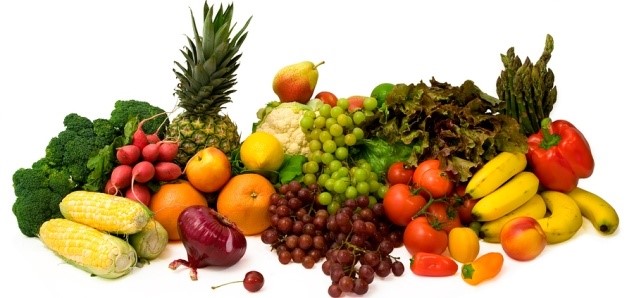Fruits and Veggies Matter
By Avance Care’s Registered Dietitian: Erin Burke, MS, RDN, LDN
In case you missed it, August was “Kids Eat Right Month”1! At this point, students and families have probably developed their routine for the new school year. As the excitement of a new classroom fades away, make sure healthy habits remain at the forefront! Childhood obesity remains a major public health concern, with over one-third of children remaining overweight or obese2,3. Being overweight or obese throughout childhood can have significant impacts on health, such as increased risk for cardiovascular disease and diabetes. For example, 70% of obese children already have one or more risk factor for cardiovascular disease! In addition, obese children are more likely to become obese adults. While these risks may seem intangible, especially when pressed with urgent matters like balancing a career and getting everyone to soccer practice and dance class, healthy habits can have immediate lasting results on your child’s academic achievements.
Research has demonstrated clear connections between healthy habits, including proper nutrition and physical activity, and academic performance4-8. For example, students who regularly eat breakfast, either at home or at school, tend to have better memory, improved concentration, fewer absences, and higher academic achievement 2,8. On the contrary, those who skip breakfast tend to have lower cognitive performance4. They may be less alert, have decreased problem-solving abilities, and may lack attention. Research on physical activity among students shows similar outcomes, including an improvement in classroom behavior among those students who are more active6.The benefits are clear, but how do you put this knowledge into practice?
As children go off to school, promoting healthy habits may seem daunting. Your child may come home with his or her healthy lunch untouched. There are birthday parties and sporting events where access to treats and soft drinks is unlimited. Not to mention, the only vegetable your child eats may resemble a potato chip! It may seem overwhelming, but navigating this environment is not impossible. See below for some research-based suggestions!
Monkey see, monkey do
Children learn by watching their parents9. If you want your child to be an avid vegetable eater, make sure vegetables make regular appearances on your own plate! If Mom or Dad is scoffing at the “green” in the pasta, your child may learn to do the same, even having never tried the food in the first place. Furthermore, family meals are associated with improved health in children and adults10!

Offer options
Instead of telling your child what is provided for lunch, offer a couple of healthy options. For example, ask, “Do you want broccoli or baby carrots in your lunch”? This will allow the child to feel like he or she has some control over the food being offered. In addition, offer the foods in an appealing manner. Cut fruits or vegetables into fun shapes or provide a familiar dip to go along with the food. If your child chooses not to eat the foods, let it go and do not stress. It is important to offer foods in a neutral manner; that is, no punishment and no praise11.

Involve the Child
Similar to offering options, involving the child in grocery shopping and meal preparation can increase the likelihood that they will actually eat what is prepared12. Each week let him or her pick out a new fruit or vegetable to experiment with, and then offer it with already-familiar foods. They may eat one bite, the whole portion, or not even acknowledge it. Either way, they are one step closer to familiarizing themselves with a new food. Children may need to be introduced to a new food 15 or more times, in a neutral manner, before accepting it! Some kid-friendly “jobs” include washing, mixing, or arranging on a plate or platter.
Follow the “Division of Responsibility”
Ellyn Satter, MS, RDN, MSSW, a registered dietitian/nutritionist, family therapist, and renowned expert in childhood feeding and eating, recommends following the “Division of Responsibility”13,14. As a parent, your job is to ensure that a variety of foods is available, including more and less “healthy” options. Your child can then decide whether to eat the foods and how much. You should also provide safe locations for children to play or opportunities to participate in sports or activities. Again, your child can decide whether to participate. Provide these opportunities in a neutral manner; do not force or praise eating or activity. For more information on this topic, see the Ellyn Satter Institute11-14.
September is the month of Fruit and Veggies – More Matters15! Starting at home with the above tips is one of the first steps you can take to get your kids excited about fruits and vegetables. Start small – remember, every little bit(e) counts!
References
- Academy of Nutrition and Dietetics. During Kids Eat Right Month, Help Children Fuel for School with Tips from the Academy of Nutrition and Dietetics. 2016. http://www.eatrightpro.org/resource/media/press-releases/kids-eat-right-month/during-kids-eat-right-month-help-children-fuel-for-school-with-tips-from-the-academy. Accessed 8/31/16.
- Centers for Disease Control and Prevention. Prevalence of Childhood Obesity in the United States, 2011-2012. http://www.cdc.gov/obesity/data/childhood.html. Accessed 8/31/16.
- Centers for Disease Control and Prevention. Childhood Obesity Facts. http://www.cdc.gov/healthyschools/obesity/facts.htm. 8/31/16.
- Centers for Disease Control and Prevention. Health and Academic Achievement. 2014. http://www.cdc.gov/healthyyouth/health_and_academics/pdf/health-academic-achievement.pdf. Accessed 8/31/16.
- Edwards, Mausch, and Winkelman. Relationship of nutrition and physical activity behaviors and fitness measures to academic performance for sixth graders in a midwest city school district.The Journal of School Health. 2011; 81(2):65-73.
- Donnelly et al. Physical Activity, Fitness, Cognitive Function, and Academic Achievement in Children: A Systematic Review. Medicine and Science in Sports and Exercise. 2016;48(6):1197-1222.
- Gajre et al. Breakfast Eating Habit and its Influence on Attention-concentration, Immediate
- Memory and School Achievement. Indian Pediatrics. 2008;45(n/a): 824-828.
- Savage, Fisher, and Birch. Parental Influence on Eating Behavior: Conception to Adolescence. The Journal of Law, Medicine and Ethics. 2007; 35(1):22-34.
- The Ellyn Satter Institute. Everybody Does Better With Family Meals. 2016. http://ellynsatterinstitute.org/htf/everybodydoesbetterwithfamilymeals.php. Accessed 9/8/16
- The Ellyn Satter Institute. Avoid Pressure. 2016. http://ellynsatterinstitute.org/htf/avoidpressure.php. Accessed 9/8/16.
- Te Ellyn Satter Institute. How Children Learn to Like a New Food. 2-16. http://ellynsatterinstitute.org/htf/howchildrenlearntolikenewfood.php. Accessed 9/8/16.
- The Ellyn Satter Institute. Ellyn Satter’s Division of Responsibility in Feeding. 2016. http://ellynsatterinstitute.org/dor/divisionofresponsibilityinfeeding.php. Accessed 9/8/16.
- The Ellyn Satter Institute. Ellyn Satter’s Division of Responsibility in Activity. 2016. http://ellynsatterinstitute.org/dor/divisionofresponsibilityinactivity.php. Accessed 9/8/16.
- Produce for Better Health Foundation. September if Fruits and Veggies – More Matters Month. 2016. http://www.fruitsandveggiesmorematters.org/September+is+Fruits+%26+Veggies–More+Matters+Month. Accessed 9/8/16.


